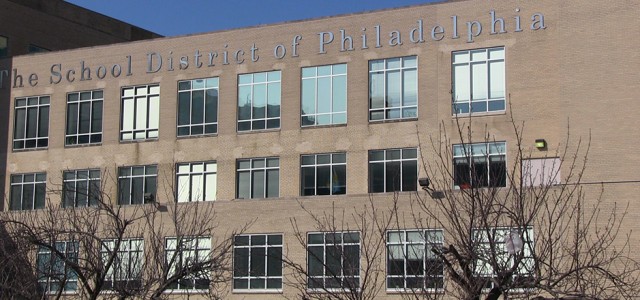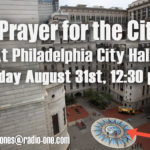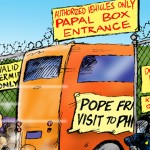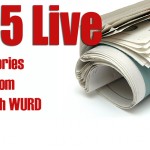AMONG THE MANY things that are making me scratch my head in relation to the School District of Philadelphia’s current funding crisis is the strange bedfellows it’s creating.
I recently got a media advisory from Public Citizens for Children and Youth about a press conference and parent briefing that the organization was doing with school district officials about the proposed increase in the cigarette tax, and what would happen with the schools if it didn’t pass.
Philadelphians like to smoke … drink, and hit the slot machines, [but] the holes in the school district budget get larger and larger every year. In other words, we’re relying on vices to fund education, and it’s not entirely working.
During Mayor John Street’s administration, another hole in the School District’s budget was closed with a liquor-by-the-drink tax that was passed on to those who like a little wine (or something stronger) with dinner.
When Pennsylvania became one of the 39 states that added casino gambling to its lottery games, among the carrots dangled in front of residents was the promise of stabilizing school funds.
And despite the fact that Philadelphians like to smoke (City residents smoke at some of the highest rates in the country), drink, and hit the slot machines, the holes in the school district budget get larger and larger every year.
In other words, we’re relying on vices to fund education, and it’s not entirely working.
How did we get to the sin tax?
When we became a nation of tax cutters sometime in the late 1970s, state legislatures started looking for ways to fund education that that didn’t cause homeowners sticker shock.
In theory, this makes sense. I mean, hey. You have a two-pack-a-day habit. You’re gonna smoke anyway. Why not work it to the advantage of the kids that your habit is gonna leave fatherless when you die of cancer or heart disease?
So they started looking at so-called “bad” habits or vices as a means of getting kids the education they need.
In theory, this makes sense. I mean, hey. You have a two-pack-a-day habit. You’re gonna smoke anyway. Why not work it to the advantage of the kids that your habit is gonna leave fatherless when you die of cancer or heart disease?
You like to roll the dice? Roll a seven on the come-out roll for your kids…before you lose the house. Literally.
Wanna drink? Lift that glass of Jack Daniels to your sixth-grader.
Like I said, in theory this all made sense.
But in practice, it doesn’t work perfectly because you’re relying on a source of funding that’s, well, kinda unreliable.
What if we get a bigger sin tax?
For example, if the cigarette tax increase is passed, the School District is looking at a $40-$45 million dollar windfall, a windfall that will only close a little less than half of the current $93 million deficit that the district has. In order for the district to properly function, it needs a lot more than that.
And because it’ll raise the price of a pack of cigarettes to almost $10 a pack, it’ll probably lead all but the most hardcore smokers into the arms of the “loosey” man and his single, untaxed cigarettes. That’s if they don’t decide to quit entirely.
You’re relying on people to keep on performing these bad habits in spite of the extra money it’s going to cost them … They will do one of two things: Stop engaging in the habit or engage in the habit somewhere where it costs a lot less.
While people are still hanging out in the clubs, bars and restaurants here in Philly, the increase in the liquor-by-the-drink tax, and the price increase that came with it, makes some of them ask themselves if they really want to buy a second $15 martini.
And when it comes to the casinos, someone should have talked to the folks in New Jersey. When New Jersey voters passed casino gambling in 1976, the whole idea was to solve the financial problems of the state’s schools…which didn’t really happen.
You’re relying on people to keep on performing these bad habits in spite of the extra money it’s going to cost them … and they will do one of two things:
-Stop engaging in the habit or
-Engage in the habit somewhere where it costs a lot less.
Either way, the money you were banking on is no longer there and the budget hole it leaves is hard to fill unless it’s on the back of the taxpayer.
Which no one has the political will to do.
Where is the sin tax working?
Apparently, Gov. Tom Corbett has seen that this whole “Let’s turn our vices into virtues” way of funding schools might need a tweak or two. So he’s impaneled a group to look for a way to fund schools that won’t eventually lead to school districts setting up roulette tables in the middle of the cafeteria.
Let’s hope it works because if it doesn’t, we may have to get some guidance from the Clark County School District in Nevada.
The 312,000-student district has a budget of $2.1 billion and was able to replace Special Education assistants, add summer remedial courses, and do other things without making one cut to their budget. Apparently, they got better tax collections this year.
Now why am I bringing up the Clark County district and it’s financial windfall?
I’m bringing it up because there’s a town in Clark County that’s probably responsible for most of the increase.
That town? Las Vegas.
Or as it’s also known, Sin City.
 Denise Clay is a veteran journalist and adjunct professor. She is active in the National Association of Black Journalists and the Philadelphia Association of Black Journalists.
Denise Clay is a veteran journalist and adjunct professor. She is active in the National Association of Black Journalists and the Philadelphia Association of Black Journalists.








